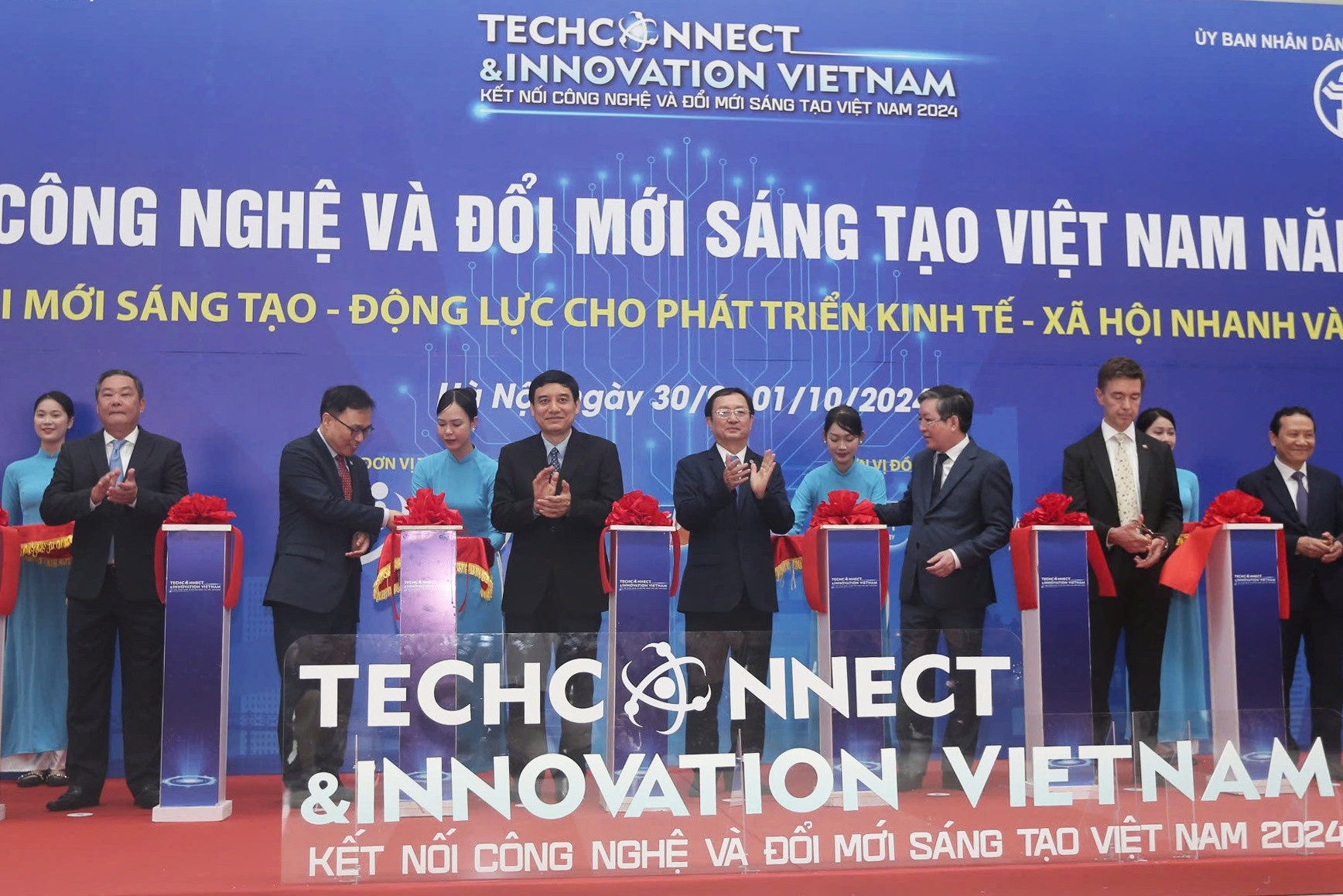The controlled experimentation mechanism, or sandbox, will facilitate Hanoi's rapid adoption of technological advancements, energizing startups and innovative enterprises. This initiative was announced during the "Techconnect and Innovation Vietnam 2024" event, held at the National Convention Center on the afternoon of September 30.
The event was a collaborative effort between the Ministry of Science and Technology (MOST) and the Hanoi People's Committee, focusing on fostering innovation as a driver for rapid and sustainable socio-economic development.
Techconnect and Innovation Vietnam 2024, organized on a national scale, included numerous in-depth activities centered on technology and innovation. It also served as a forum for discussing and effectively implementing solutions and policies to connect supply and demand, transfer, and develop technology.
According to the 2024 Global Innovation Index (GII) report by the World Intellectual Property Organization (WIPO), Vietnam ranks 44th out of 133 countries, maintaining a leading position among lower-middle-income nations. Over the past decade, Vietnam's ranking has improved by over 30 places, a clear testament to its commitment to advancing science, technology, and innovation.
Minister of Science and Technology, Huynh Thanh Dat, emphasized the substantial role of science, technology, and innovation in the country's socio-economic development. These sectors are not only the main drivers of productivity and sustainable growth but also create new business models and enhance the competitive capacity of businesses and the nation internationally.
Le Hong Son, the Vice Chairman of the Hanoi People's Committee, shared that Hanoi is home to over 70% of the country’s science and technology organizations, universities, research institutes, and 82% of its laboratories, including 14 key national laboratories. With more than 65% of the country’s leading scientists based in Hanoi, the city has a unique advantage in focusing investments on developing science, technology, and innovation.
However, Hanoi faces challenges such as the lack of specific, breakthrough mechanisms for the development of science and technology, and incomplete high-tech infrastructure, exemplified by the Hoa Lac High-Tech Park’s challenges regarding technical infrastructure, capital, and investment attraction mechanisms.
In response, Hanoi has implemented numerous solutions, prioritizing the completion of a legal framework and policies concerning science, technology, and innovation. The focus is on establishing unique, breakthrough mechanisms to truly make science, technology, and innovation the driving forces for the city’s socio-economic development.
According to Son, the recently amended Capital Law passed by the National Assembly will help address bottlenecks and obstacles in the development of science, technology, and innovation in the capital.
A significant new feature of the law is the controlled testing mechanism (sandbox) for several sectors, particularly new technologies. This will enable Hanoi to quickly access technological advancements and provide a boost for creative startup enterprises.
Trong Dat
